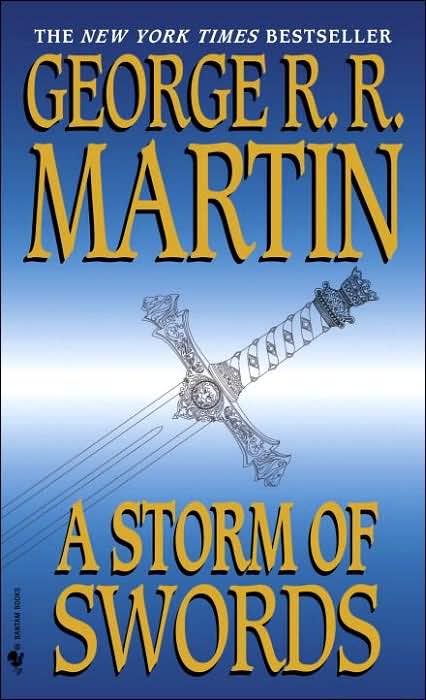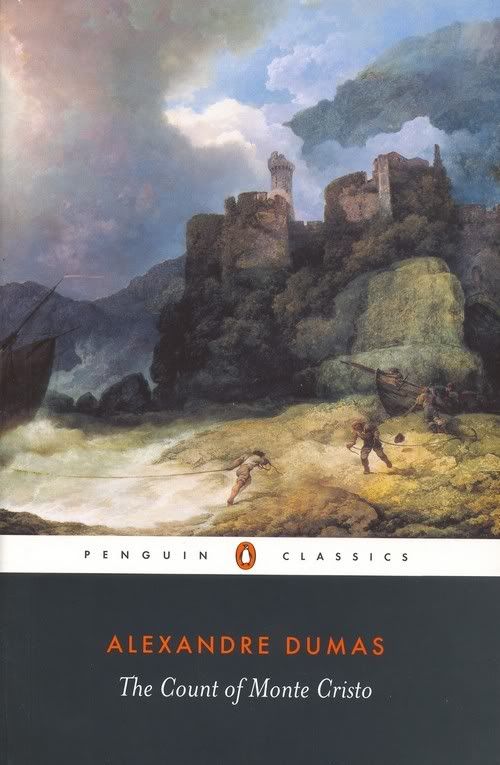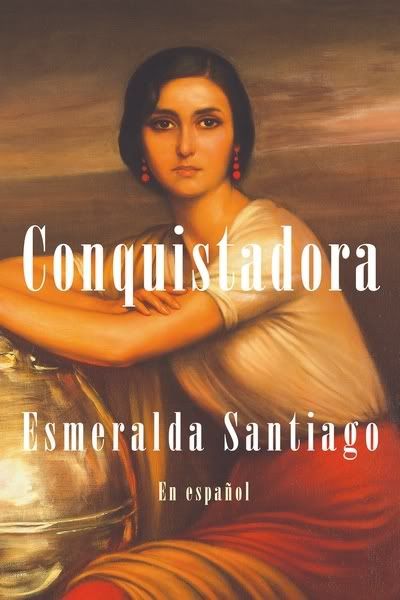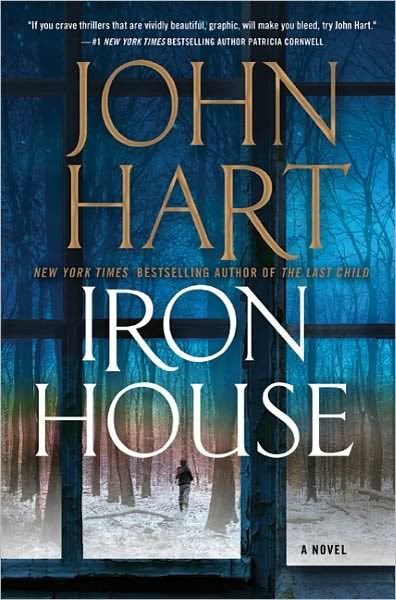
The third volume of the high fantasy saga that began with A Game of Thrones and continued in A Clash of Kings is one of the more rewarding examples of gigantism in contemporary fantasy. As Martin's richly imagined world slides closer to its 10-year winter, both the weather and the warfare worsen. In the north, King Joffrey of House Lannister sits uneasily on the Iron Throne. With the aid of a peasant wench, Jaime Lannister, the Kingslayer, escapes from jail in Riverrun. Jaime goes to the other youthful ruler, Robb Stark, to secure the release of Joffrey's prisoners, Robb's sisters Arya and Sansa Stark. Meanwhile, in the south, Queen Daenarys tries to assert her claim to the various thrones with an army of eunuchs, but discovers that she must choose between conquering more and ruling well what she has already taken. The complexity of characters such as Daenarys, Arya and the Kingslayer will keep readers turning even the vast number of pages contained in this volume, for the author, like Tolkien or Jordan, makes us care about their fates. Those two fantasy greats are also evoked by Martin's ability to convey such sensual experiences as the heat of wildfire, the chill of ice, the smell of the sea and the sheer gargantuan indigestibility of the medieval banquet at its most excessive. Perhaps this saga doesn't go as far beyond the previous bounds of high fantasy as some claim, but for most readers it certainly goes far enough to command their attention. (Nov.)
Author: George R. R. Martin
Series: A Song of Ice and Fire
Genre: Fantasy
Publisher: Bantam; First Edition edition (October 31, 2000)
Media type: Hardcover, Paperback, Kindle, Audio Book
Pages: 992 pages
ISBN-13: 978-0553106633
Followed by: A Feast For Crows
Preceded by: A Clash of Kings
Publication date: August 2000
Reader Review
An emotional roller coaster ride: bliss, surprise and sorrow
First off, I'm a heavy duty fan of GRRM. I've read over a 100 different fantasy authors in my time (started at 12; I'm now 32). Took about 5 years off from the genre b/c I felt it was all getting too formulaic and cliched. Typical archetype character who turns out to be the missing heir or boy wonder who saves the world against the Dark Lord.
So, when I came back to fantasy at the end of 1999, I read the usual: Goodkind, Jordan, etc. and then someone told me about GRRM and man, that was the kicker!
Here are the reasons to choose GRRM. I've also listed the reasons not to choose him to make it fair b/c I know their are certain personalities who won't like this series:
WHY TO READ GRRM
(1) YOU ARE TIRED OF FORMULAIC FANTASY: good lad beats the dark lord against impossible odds; boy is the epitome of good; he and all his friends never die even though they go through great dangers . . . the good and noble king; the beautiful princess who falls in love with the commoner boy even though their stations are drastically different . . . the dark lord is very evil and almost one sided at times . . . you get the idea. After reading this over and over, it gets old.
(2) YOU ARE TIRED OF ALL THE HEROES STAYING ALIVE EVEN THOUGH THEY ARE UNDER CONSTANT DANGER: this gets even worse where the author kills a main hero off but that person comes back later in the story. Or, a hero does die but magic brings him back.
This sometimes carries to minor characters where even they may not die, but most fantasy authors like to kill them off to show that some risked the adventure and perished.
(3) YOU ARE A MEDIEVAL HISTORY BUFF: this story was influenced by the WARS OF THE ROSES and THE HUNDRED YEARS WAR.
(4) YOU LOVE SERIOUS INTRIGUE WITHOUT STUPID OPPONENTS: lots of layering; lots of intrigue; lots of clever players in the game of thrones. Unlike other fantasy novels, one side, usually the villain, is stupid or not too bright.
(5) YOU ARE INTERESTED IN BIASED OPINIONS AND DIFFERENT TRUTHS: GRRM has set this up where each chapter has the title of one character and the whole chapter is through their viewpoint. Interesting tidbit is that you get their perception of events or truths. But, if you pay attention, someone else will mention a different angle of truth in the story that we rarely see in other novels. Lastly and most importantly, GRRM doesn't try to tell us which person is right in their perception. He purposelly leaves it vague so that we are kept guessing.
(6) LEGENDS: some of the most interesting characters are those who are long gone or dead. We never get the entire story but only bits and pieces; something that other fantasy authors could learn from to heighten suspense. Additionally, b/c the points of views are not congruent, we sometimes get different opinions.
(7) WORDPLAY: if you're big on metaphors and description, GRRM is your guy. Almost flawless flow.
(8) LOTS OF CONFLICT: all types, too; not just fighting but between characters through threats and intrigue.
(9) MULTILAYERED PLOTTING; SUB PLOTS GALORE: each character has their own separate storyline; especially as the story continues and everyone gets scattered. This is one of the reasons why each novel is between 700-900 pages.
(10) SUPERLATIVE VARIED CHARACTERS: not the typical archetypes that we are used to in most fantasy; some are gritty; few are totally evil or good; GRRM does a great job of changing our opinions of characters as the series progress. This is especially true of Jaime in book three.
(11) REALISTIC MEDIEVAL DIALOGUE: not to the point that we can't understand it but well done.
(12) HEAPS OF SYMOBLISM AND PROPHECY: if you're big on that.
(13) EXCELLENT MYSTERIES: very hard to figure out the culprits; GRRM must have read a lot of mystery novels.
(14) RICHLY TEXTURED FEMALE CHARACTERS: best male author on female characters I have read; realistic on how women think, too.
(15) LOW MAGIC WORLD: magic is low key; not over the top so heroes can't get out of jams with it.
REASON TO NOT READ GRRM
(1) YOU LIKE YOUR MAIN CHARACTERS: GRRM does a good job of creating more likeable characters after a few die. But, if that isn't your style, you shouldn't be reading it. He kills off several, not just one, so be warned.
(2) DO NOT CARE FOR GRITTY GRAY CHARACTERS: if you like more white and gray characters, this may unsettle you. I suggest Feist or Goodkind or Dragonlance if you want a more straight forward story with strong archetypes.
(3) MULTIPLE POINTS OF VIEWS TURN YOU OFF: if you prefer that the POVS only go to a few characters, this might be confusing for you.
(4) SWEARING, SEX: there's a lot of it in this book just as there is in real life. If you have delicate ears, this book may upset you.
(5) YOU DEMAND CLOSURE AT THE END OF EVERY BOOK: this isn't the case for all stories in the series. Some are still going on; some have been resolved; others have been created and are moving on.
(6) IF YOU WANT A TARGET OR SOMEONE TO BLAME: this can be done to some extent but not as much. This is b/c he doesn't try to make anyone necessarily good or evil.
(7) ARCHETYPES: some readers like archetypal characters because it's comfortable; we like the good young hero (sort of like Pug in Feist's THE RIFTWAR SAGA); it's familiar and we sometimes like to pretend we're this upcoming, great hero. You wont' get much of this in GRRM with the exception of one or two characters. There really aren't any super heroes compared to all the other characters as it's more grittier and no one is shooting fireballs every milisecond or carrying around some super powerful sword.
(8) LENGTH: you don't want to get into a long fantasy epic series. In that case, look for shorters works as this is biiig.
(9) PATRIARCHY: men are most of the main characters with lots of power (one female exception). While this is realistic of the medieval era, some readers may not prefer this if they want more girl power, so to speak.
By the way, if you don't want to commit to a big book until you know the author better, check out his short story, THE HEDGE KNIGHT, in LEGENDS.
- by MISTER SJEM "sonofhotpie"
Martin Owns The Throne
1) This is, BY FAR, the best fantasy I have ever read. Ever. Better than Donaldson, Jordan, Goodkind, Brooks, better than everyone.
2)This is, BY FAR, the best characterization I've ever come across in the fantasy genre. Never in my life have I at so many different times over the course of the three books written been so amazed (Daenerys from the fire, obtaining the Unsullied, choosing between the {better?} of two betrayels) stunned (Catelyn, Ser Barristan Selmy) grief-stricken (from deaths of beloved characters, of course only to realize by the end of the next chapter there are so many fantastic characters left). And of course these are just a few examples, there are so many more but don't want to mention at the risk of spoiling new readers.
Yes -- amazed, stunned, saddened. I spontaneously and literally yelled, gasped, cried, and cheered while reading these books. Never have I been so emotionally invested in such a large cast of characters. Memories of these books bring forth emotion in me even now, a month after I read this, his latest book.
3)Fabulously intricate plotting. I find it interesting that a common thread in the slightly more negative reviews of this book find Martin a bit ponderous -- that there's so much writing with not alot of action. This couldn't be further from the truth!
Yes, this is high, epic, cruel fantasy of the tallest order. Yes, this is a tall read for younger readers, or those weaned on Jordan, Goodkind, Brooks, etc. But there literally isn't a SINGLE CHAPTER in any of his books where some part of the plot isn't advanced in some way -- spanning over 2000 pages of hardcover text. That's how good the writing is.
4)Deftly understated magic. I remember reading the first book thinking to myself, 'where's the magic? isn't this supposed to be fantasy?' And I kept reading, still finding almost no magic. The only real magic from the first book I can remember bookends the first book. I will never forget the birth of the Unburnt at the very end of the first novel. I'm gasping right now as I recall it. Such a POWERFUL moment. And there was some magic there. And the fact that my senses hadn't been already been dulled by the overdone, contrived use of magic found in so many other fantasy novels allowed me to feel the real impact of what Dany accomplished at the end of that first novel. Magic means so much more in these novels because at least over these the first three books, there is so little to be found.
5)Spectacular dialogue. This is the best dialogue I've ever read. Razorsharp wit, acid tongues, stoic nobility, prideful revenge, hungry vengeance, soul-baring sadness, and so many other wonderful emotions conveyed by superior dialogue. If this review weren't so long, I'd quote a few passages. I just remember reading some of those Lannister exchanges saying to myself 'you go! oh yeah! perfect!" I remember laughing out loud at some of the things said, not so much because they were humorous (although some of them were) but because so often the pointed words exchanged felt more like the point of a rapier twisting through the ribcage into the recipient's heart. It's just that good. So consistently good.
6)Anyone remember Thomas Covenant? One of the great anti-heroes in fantasy. You rooted for him and hated him. You knew he was the good guy, but you were never quite comfortable enough with who he was to cheer him on without reservation.
Well, many characters like him, not just one, populate Martin's books. As soon as you think you've found the bad guy, you begin to root for him as well. And you wonder, as you go from chapter to chapter, how you can find yourself rooting for almost every character in the book? Well, that's just one of the many great things about Martin's books. Practically every character is an anti-heroe and how a book can be so riveting with (at this point) no clear villain is a testimonial for the great characterization in these books.
People, I'm not kidding. This is the best out there. If Martin pulls off this series it will far and away be the best epic fantasy ever written. It already is, I'm just praying it's sustained. Yes, it's better than Tolkien, but only in the way that The Godfather was better than the old great silent pictures of the early 20th century. I regard Tolkien's work with great reverance, and it's wonderful to see the foundations of the fantasy genre brought to the big screen, but Martin is taking the genre to new heights. He truly is.
For me, I knew at least the first book was special early on. If you can... sense something... if yours eyes open just a bit, if your curiosity is peaked... if you're thinking 'hmmm'.... as the first chapter closes with the discovery of the Direwolves, then you'll be tasting just a hint of the wonderment Martin's books can give you.
Just try not to be too sad when you've finished and realize there may not be anything this good for a long, long time to come.
- by Michael Snyder
Unabated Frustration Costs Martin One Star
I've read through some of the other reviews of the first three books of this series and I think it time to address a few of the most commonly cited complaints.
First: the sex. Yes, there is a lot of graphic sexuality in these novels. But, you know, there's a lot more warfare, fighting, murder and mutilation. These books are about warfare and political intrigue. If you're bound to be offended by anything graphically described, then these are not the novels for you as the pages are rife with blood and gore. Sex, in comparison, is kind of a friendly diversion even if it is described in terms devoid of romance and rose petals. If, on the other hand, you are offended by sexuality but not by graphic violence, then there are more pressing questions for you to consider than which fantasy novel to read.
Second: character deaths. Yes, there are a lot of character deaths. Too many? Not enough? Hmm... I'd say just about right. It keeps things healthy, to have cared-for characters die every so often: it keeps you on your toes. Also, given the aforementioned subject matter, war and intrigue, it simply wouldn't make sense not to have death now and again. Finally, there are so many characters and so many plots running around that death is a nice way of keeping things rather more in hand. I do have a complaint regarding the character deaths, however, which I will come to soon.
Third: the gray morality. Yes, the characters are round and multi-faceted. Everyone has virtues, everyone has flaws. (Well, okay, I'd be hard-pressed to find the virtues in some of them, like Gregor or Joff, but still...) But, you know, that doesn't mean that the characters can't be seen as heroic or villainous. Just because Hitler loved animals and was a vegetarian (which is true) doesn't mean he didn't have some rather defining characteristics. C'mon-you know who the heroes and who the villains are. And, while our opinions do sometimes change (Jaime's character, for instance, starts to change over the course of this book), the reason that they do so is not because there is no morality present, but precisely because there is. But here, I again have my own complaint, which I shall deal with presently.
Having dealt with the gripes of others, it's now time for me to develop my own. My problem with Martin's morality is that he makes it appear that, roughly, good = stupid. If there were a hard and fast rule in his world, it would seem to be that being an honorable person will certainly lead to pain, humiliation and death. Often, the problems that the more heroic characters encounter are of their own devise, and it usually comes from blindly trusting and acting honorably to the more villainous characters. And so, Ned warns Cersei of his discovery instead of immediately taking action. Robb releases Theon to his home. Rodik refuses to attack on Winterfell until too late, trusting in his enemy's honor (despite knowing his enemy to have none). Catelyn releases Jaime. Renly and Stannis refuse to attack King's Landing, again until too late. Loras pledges himself to Joffrey instead of striking him down. Cate and company trust Frey. Sansa trusts, well, everyone she shouldn't. Time after time, the heroes have the ability and the opportunity to win the day, and time after time they drop the ball and allow villainy to succeed. It has been said that all it takes for evil to win is for good men to do nothing. In this series, good men often surpass doing nothing by doing extremely stupid things to the advantage of the evil. And this is not to mention Tyrion, who is a heroic character completely enthralled to his villainous family and keeping them alive and kicking more than any other. The villains in this series would have no hope of winning at all if it were not for the active interference (sometimes unwitting), in their favor, of the heroes. It's like reading a big, adult Series of Unfortunate Events populated by several Mr. Poes who continually place orphans in Olaf's hands and refuse to hear their warnings (much like Ned dismissed Arya's warnings, just prior to his being arrested/decapitated). And that is a little frustrating, the difference being that this frustration is primarily what Snicket intends-I am less sure as to Martin's intention.
My second gripe, concerning characters deaths, as promised, is that: the deaths don't always seem to be part of some master plan. Sometimes, the deaths just feel kind of tacked on, either for shock or for "realism." And, actually, this is part of a greater concern, the apparent lack of a master plan. As a for instance, way back in book one, you remember how Sansa's wolf, Lady was killed, and how that felt significant? As though, eventually, it would somehow matter that Sansa didn't have her wolf with her? Well... Sansa hasn't really gone through anything better or worse than any of the other Starks, and she's much more alive than some, including one who kept his wolf all the way to the end. It rather seems that Lady's death wasn't particularly significant. And that's the way a lot of the events feel including, sadly, character deaths. Again, this could be viewed as "realistic." But I prefer it when realism is subordinated to drama-when fictional events seem to have form and shape and direction as opposed to the chaos and borderline randomness of the real world. When a character dies, I want there to be a compelling reason for the death, being as it is such an inherently compelling event. Martin sometimes seems to kill his characters out of a sort of whimsy.
My third and final gripe remains roughly the same as it was with the first two books and is, in a nutshell, this: too damned long. Forget the page count; Martin's writing is good enough to read for ten thousand pages, I mean that he's taking too long to get to the point. This third installment of the series ends in a quick succession of highpoints. It's meant to build interest and steam going into the fourth, which it does (frustratingly so, given the time between releases). But most of the third book, like most of the second and the first before it, are build up. Three thousand pages of build up are simply not welcome, and certainly not in the face of a projected three thousand to come. There was even a point, somewhere near page 600 of this book, where I started to question my investment. After all, do I have any assurance that the next book, or the book after, will offer any satisfaction? How long will I have to wait, exactly, for any sort of a sense of closure on anything? How good is Martin's heart? His cholesterol count? Blood sugar? I suppose, on the bright side, that this series helps a person develop their patience and endurance. But, I'll tell you, couple this with my doubts of Martin's having a master plan, and you have a potential nightmare in the making. Is it still possible that he does have a direction in mind, and that book six will end up with all of the strings neatly tied in a satisfactory bow? Yes-that's still possible. But the hope dwindles with every passing page.
In the end, I will continue. Onwards to book four, I say, and quick about it. Frankly, I may have invested too much to turn back, now, no matter what happens. But I'm punishing Martin with one star less on this novel than I'd awarded the previous two. The book has the same quality as the others in the series, and the last fifty pages or so are rather exhilarating (and the scene with Sansa building the castle in the snow is just awesome-the kind of thing Martin must have had planned for a long time), but the slight problems become large over time, sort of like Malcolm's explanation of fractals and chaos theory in Jurassic Park, or something. Unabated, these problems will choke him all the way down to a single star by series end. I only pray it doesn't come to that.
- by DonAthos





